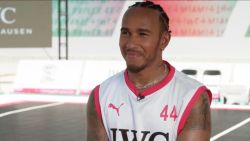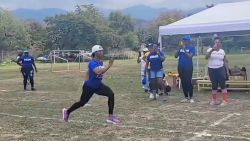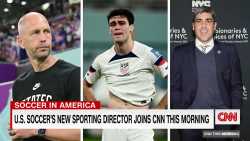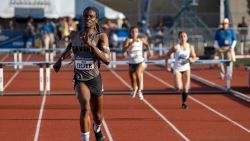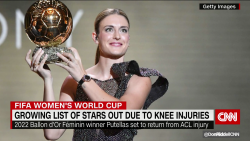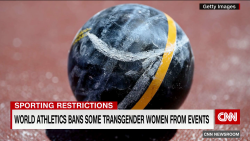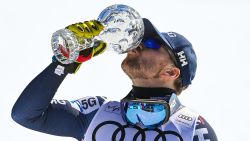November is traditionally known for turkey on Thanksgiving and fireworks on Guy Fawkes Night. It is now also known for mustaches.
Men around the world commit their upper lips to making a difference, all in the name of charity.
Movember was set up in 2003 by two friends, Travis Garone and Luke Slattery, in Melbourne, Australia to shine a spotlight on men’s health, a topic that they believed wasn’t talked about enough.
Participants grow mustaches throughout the month of November, asking for donations along the way, with all of the funds raised going to charities that focus on prostate and testicular cancer, men’s mental health and suicide prevention.
Since its inaugural year – which had just 30 participants and raised no money – the campaign has blossomed. In 2018, from its 321,975 participants, the charity raised $70.1 million (AUD102.9m).
It has funded more than 1,250 men’s health projects since 2003 as the Movember movement tries to help reduce the number of men dying prematurely by 25%.
Leading sportsmen are increasingly participating. In 2019, Cleveland Browns quarterback Baker Mayfield, Wales and British and Irish Lions rugby winger George North and England cricketer Rory Burns are all growing mustaches. Olympic gold medal-winning swimmer Nathan Adrian is participating for the first time this year.
England rugby sevens player Alex Davis attempted to grow a mustache five years ago after seeing players on TV with some “dodgy looking Mo’s,” but only really focused on fund raising himself this year.
And both have very different reasons for getting involved. Adrian was diagnosed with testicular cancer in the winter of 2018, while Davis’ father passed away from leukemia in 2015. Subsequently, Davis has had to face his own battles with mental health and suicide.
Since then, Movember has become extremely important to Davis and he stresses the importance of speaking up.
“The number one thing I’ve taken away from my own experiences is just being comfortable with your own vulnerabilities and being willing enough to share when you’re not OK,” Davis told CNN.
“Because all it took me was basically someone to ask me the question, ‘How’s it going?’ or ‘How are you?’ and I had a bit of a breakdown. That was because I wasn’t addressing the pain and discomfort I had.
“If any point you feel uncomfortable or not OK, the best thing you can do is speak to someone. It’s extremely powerful.”
READ: NBA celebrates Gorgui Dieng’s charity work in native Senegal
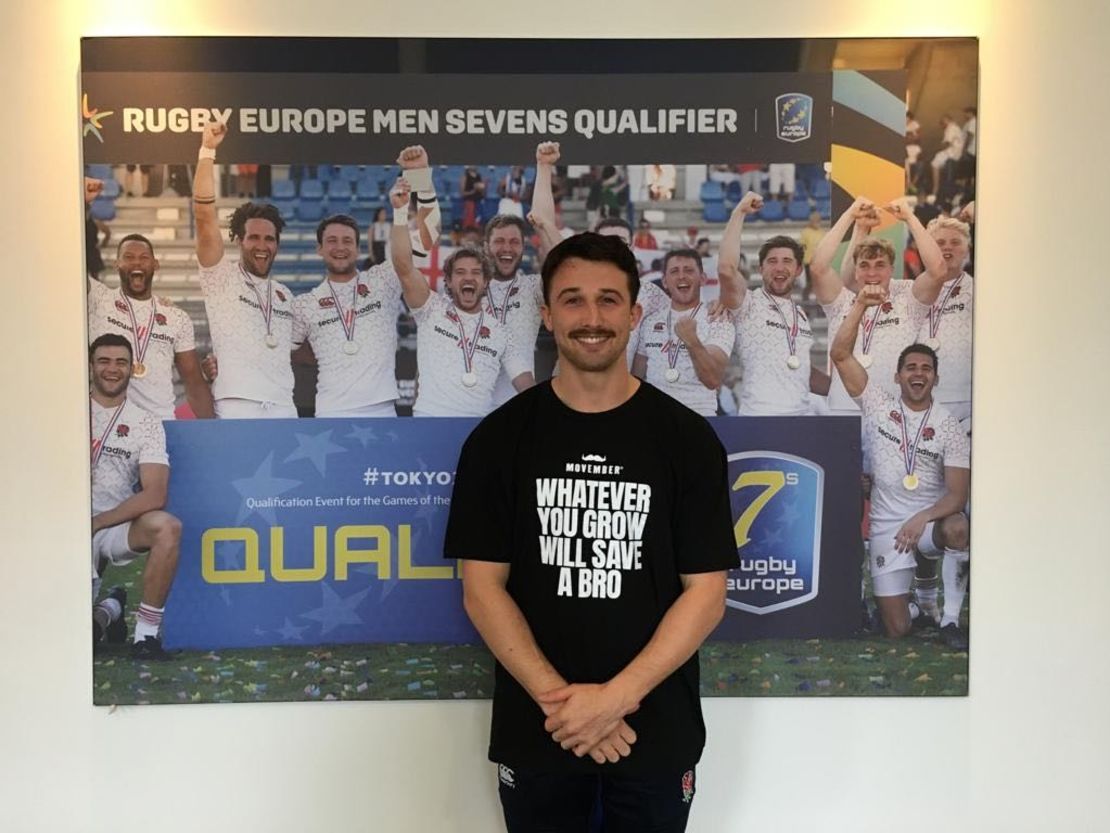
Not giving up
Through a combination of his dad’s death and the injuries he has suffered, Davis began to question whether a career in sport was for him.
Having been included in the squads for the 2014 Commonwealth Games and the 2016 Olympic Games, Davis had to withdraw from both due to injuries.
“I’ve had eight surgeries in the last three years, four this year, three on one shoulder,” Davis said.
“That whole roller coaster of emotions where one day you’re feeling great, and the next day, your body can remind you that it’s not quite so straightforward and quickly bring it back down to earth with a little bit of pain here or you’re not able to lift quite as much weight as you were last week, it can be quite humbling.
“With the mental health side of things, I lost my dad to leukemia in 2015 so having to deal with the emotions of that whilst playing and striving as much as possible to be successful in professional sport, I was having to battle all those conflicting thoughts and feelings.”
He eventually did get to play in the Commonwealth Games – as Great Britain won the bronze medal in Australia in 2018 – but to stay on the right track, Davis had to reassess his “why.”
“I definitely got to a point where I was like ‘you know what, I think enough might be enough,’” he remembers. “I found it a really hard subject to address because it was a boyhood dream of mine to be a professional rugby player and to have to potentially come to terms with accepting that that dream was over because of my body failing me essentially was really difficult.
“My ‘why’ has had to change because for a long period of time, it was always about doing it for the fun and enjoyment on the side of things, but I was really keen on how proud it made my family.”
Davis’ dad was a huge supporter of his son. But following his father’s death, some of Davis’ passion for rugby diminished.
“The fact that my dad wasn’t around anymore to share that pride with me in the enjoyment meant I had to readdress that ‘why’ and understand what my new motivation towards rugby was and the fact that I wasn’t spending time playing or training.
“I’ve needed to think about what life holds for me afterwards and if I can find something else that I’m maybe not as passionate about but something that still gives me good energy, then that’s something that’s really helped me think about what if rugby is no longer.”
READ: Tennis stars hoping to bring relief to Bahamas after Hurricane Dorian
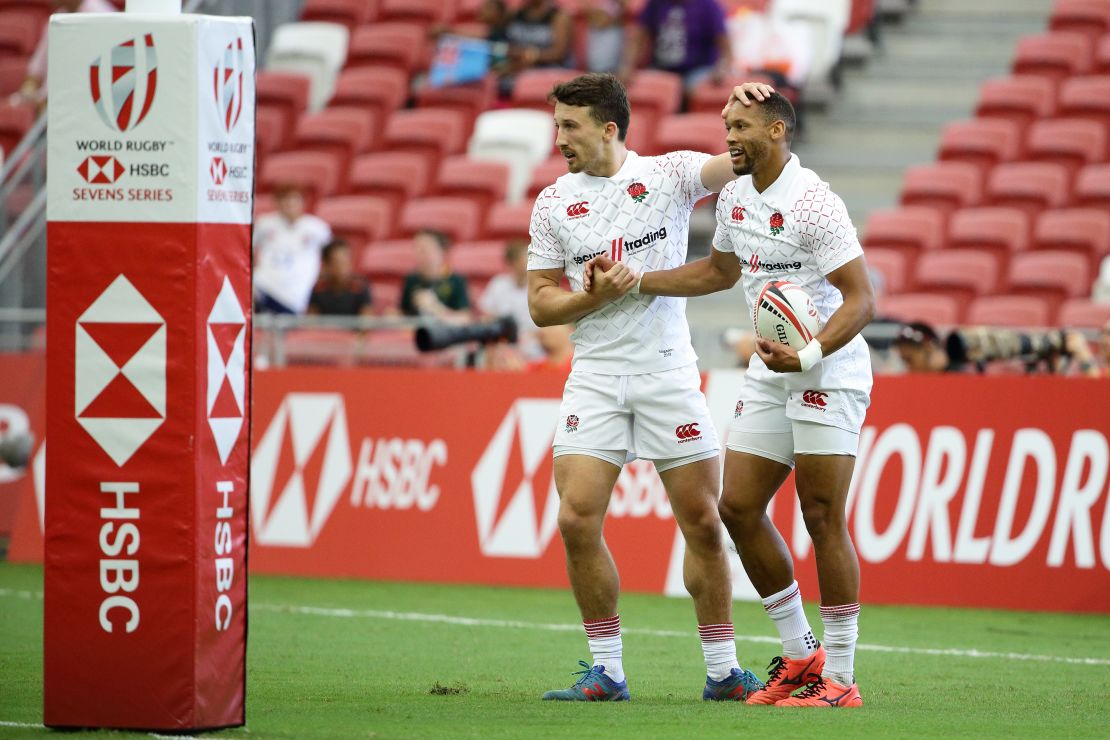
The importance of staying active
Adrian won his first gold medal at the 2008 Olympics in Beijing, before winning two more Olympic golds in 2012 in London and then 2016 in Rio.
His preparations for the 2020 Olympics were well under way before the shock news of his diagnosis, which caused the 30-year-old to experience a “ton of different emotions.”
Following two surgeries and seven months away from the sport, Adrian returned to competitive swimming at the FINA World Championships in South Korea in July.
While the bodily struggle of fighting the cancer was tough, the mental strain was much “worse” than the physical battle.
“The mental and emotional toll and managing that is probably, through testicular cancer, I think is probably one of the more important things,” Adrian told CNN Sport.
“There’s all sorts of horror stories online that you can’t help but read about. As you’re waiting for pathology or you’re waiting for your next doctor’s appointment, you’re thinking: ‘Oh no, I had a backache. Was I sitting on the couch too long or has it spread? Maybe it’s in my back now?’ The more I could rest and relax or get my mind off of it, the better off I was.”
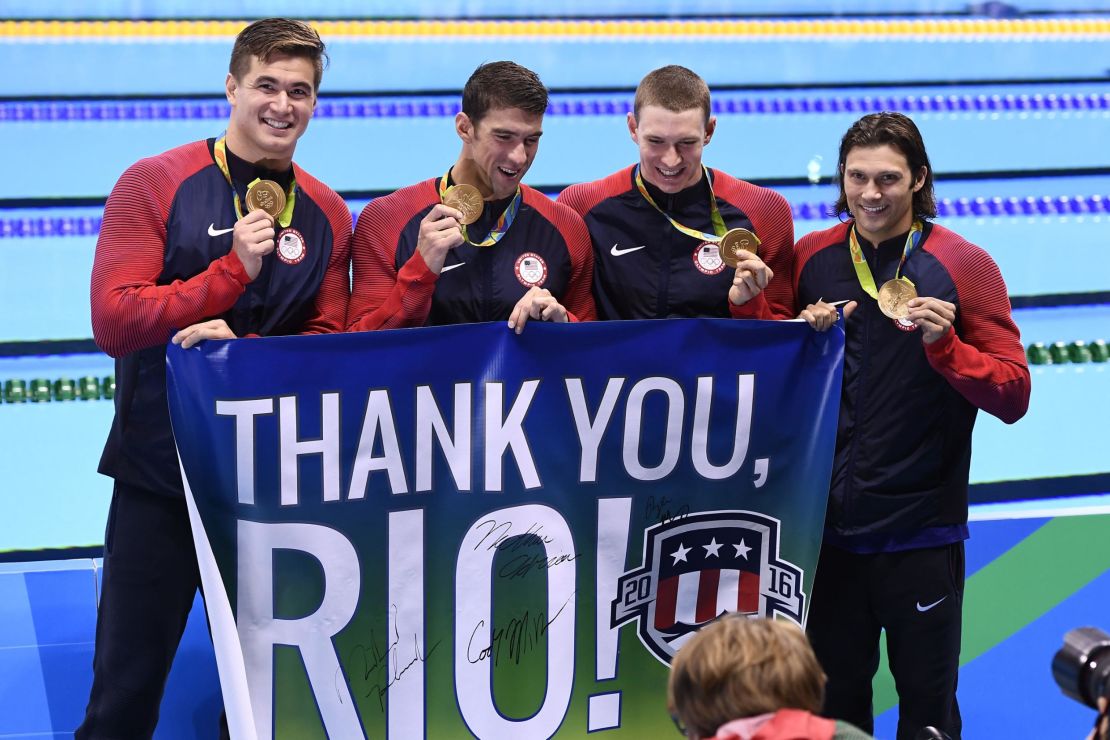
Following surgery, Adrian’s physical capabilities were severely restricted. For the weeks after, doctors allowed him to lift no more than 15 pounds.
But in those tough times, when he felt like he wasn’t lifting his weight around the house, swimming became a crutch for the American.
“Swimming and exercise were huge for me. I’m not even talking from a physiological standpoint, which I’m sure was very helpful because I was really distended, I was bloated, I felt terrible. But every time I swam, I got my blood moving,” said Adrian, who admitted having to dye his mustache to make it look more presentable.
“But more importantly than that, it was about getting back to my normal routine. When I went swimming, when I went to my physical therapy appointments, and we started working towards a goal and seeing progress each and every day, just this little, little progress.
“Just being able to swim a little further without getting as out of breath that put my mind in a state where thinking we’re on the right track, we’re getting healthier, and I’m going to be healthy at the end of this. You just got to stay committed to what we’re doing.”
READ: Soccer club donates 3,000 food parcels to the homeless after match washed out
Support network
Although Adrian has won medals as part of a successful relay team, swimming is predominantly a solo sport.
But despite the individualistic nature of the sport, Adrian received an outpouring of support and well-wishes following the announcement of his diagnosis.
These “awesome” messages of backing helped solidify the 30-year-old’s long-term identity.
“For so much of your life as a professional athlete, I think a lot of people struggle with identity, with who they are and who they are eventually when they’re finished swimming, and do these people really care for you outside of the fast times you swim?” he said.
“But for me, all those questions are settled because I think more than anything, I just understood that, there were so many people that had reached out just to be a good person, just to make sure that I was okay as a human being.
“They didn’t care even a little bit about my times or how good a shape I was in – it was it was all about my personal well-being.”
Davis is raising money for Movember alongside his England rugby sevens teammates. They initially set out to raise £5,000 and have already passed their goal.
During his darkest hours, Davis relied heavily on the friendships that he had developed with his teammates to speak about his mental health issues.
“Having a strong network of not just colleagues or teammates, but actual proper close friends is invaluable and something that I’m greatly appreciative of, and it’s been tremendous for me.
“I’m very fortunate in that fact that the England sevens set-up is a place where we encourage one another to be an individual in team environment.
“And so that means if they don’t feel that they’re in the right head space or they need to share something, whether it’s on the pitch, off the pitch, rugby related or not rugby related, there’s an environment they feel safe enough to do that.”
READ: Mosque cancels NBA star Enes Kanter’s youth camp after Turkish consulate gets involved
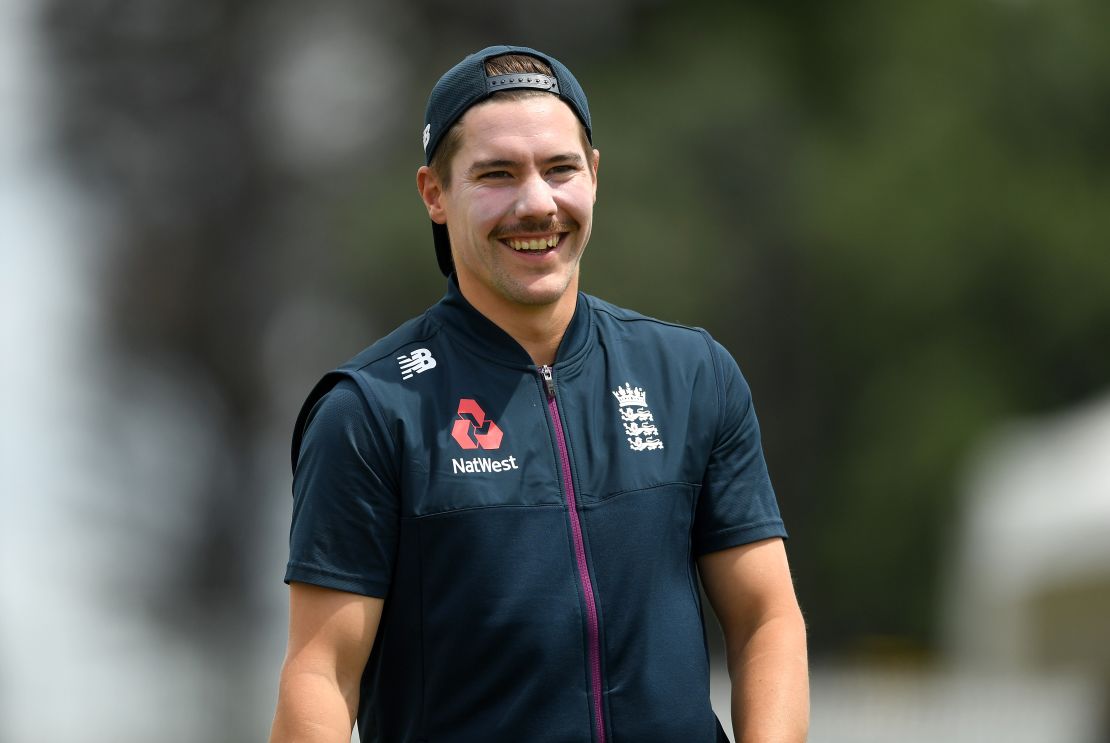
Davis and Adrian both admit that in the past, the “macho” nature of their respective sports would’ve made it difficult for them to speak out on potentially sensitive topics such as mental health or testicular cancer.
But sport has come a long way in recent years, and both athletes believe that people should feel comfortable speaking out.
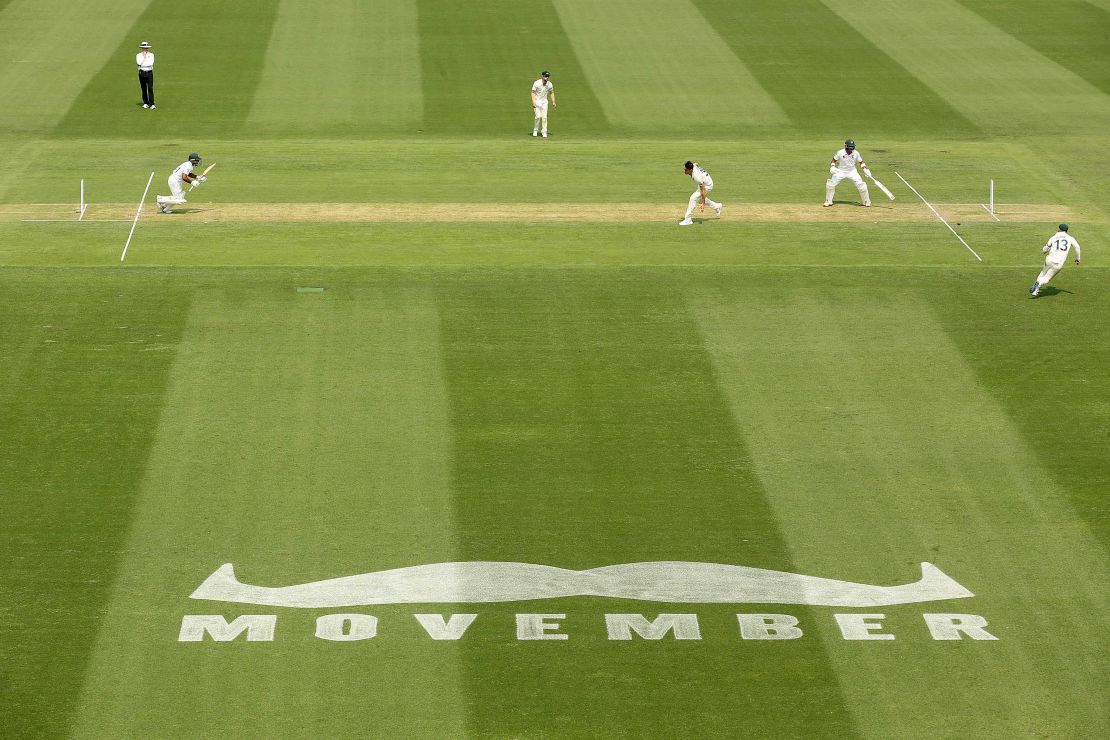
“Make sure that you’re doing absolutely everything you can to gather all relevant information,” Adrian said.
Visit CNN.com/sport for more news, features, and videos
“But then, on the flip side, when the time comes in between those appointments or in between those phone calls, as you’re waiting, do your absolute best to try not to spin on it, to not let your emotions get too out of control, maybe go do something that you enjoy, get on the golf course or just watch a good movie with your family.
“It’s definitely a marathon, not a sprint. Prepare yourself for a little bit of longevity.”


